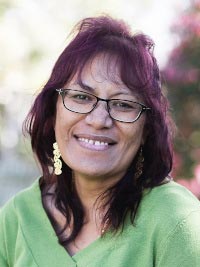
In an address titled Cultivating community wellbeing at the flax roots of vulnerable and diverse communities, Kepa-Henry painted a grim picture of the realities of life for those having to survive on benefits. “In February 2020, there were 300,000 people on benefits nationally, with the Ministry of Social Development expecting this figure to rise by January next year to 495,000,” she said.
Kepa-Henry described four case studies, using the names Somebody, Anybody, Who Cares and Nobody, to highlight the disparities in access to health services, to transport, to housing and to education.
Somebody, she said, had had a stroke and was discharged from hospital wheelchair-bound due to obesity. There was no wheelchair access into the house nor into the bathroom. Carer input was less than an hour a day, with no occupational therapy or physiotherapy input on the discharge plan. Somebody had to move to other accommodation, with the rent rising from $110 to $540 a week in private accommodation.
Anybody sought help from emergency mental health services. After waiting two days for a reply, his phone then broke and on day four, he was told he had missed his appointment and could not be seen. After an elevation of his mood, in which he threatened violence to get the help he needed, he was arrested, then released on bail with electronic monitoring, and trespassed from the emergency health centre. Eventually he was prescribed twice-daily medications, but he had no car and faced travel costs of $32 per day.
Who Cares had been unable to fill his prescription. The medication cost was $85 and Who Cares only had $65 left after paying his rent. He had no car, was not on a bus route and it was the middle of winter. “Why was there no follow-up on this client?” Kepa-Henry asked. Who Cares had a third stroke and was now being cared for full-time by his mother, who had had to give up her business to do so.
Nobody had failed numerous job interview medicals and had not seen a GP for a decade. He was unwell and illiterate, and had chronic abscesses on his face and upper body. After considerable advocacy by Kepa-Henry, he was eventually seen by a doctor.
“My clients don’t have a standing place,” she said. “They live in rented, often short-term accommodation and long for a ‘forever home’. They live and survive day to day – this is their normal reality, yet they do not see themselves as vulnerable or diverse.”
Kepa-Henry described her role as invisible. She called on nurses throughout New Zealand to strengthen their professional relationships and join with her in responding to clients like Somebody, Nobody, Who Cares and Anybody, “treating and caring for them with respect. He waka eke noa – we are all in this together“.


